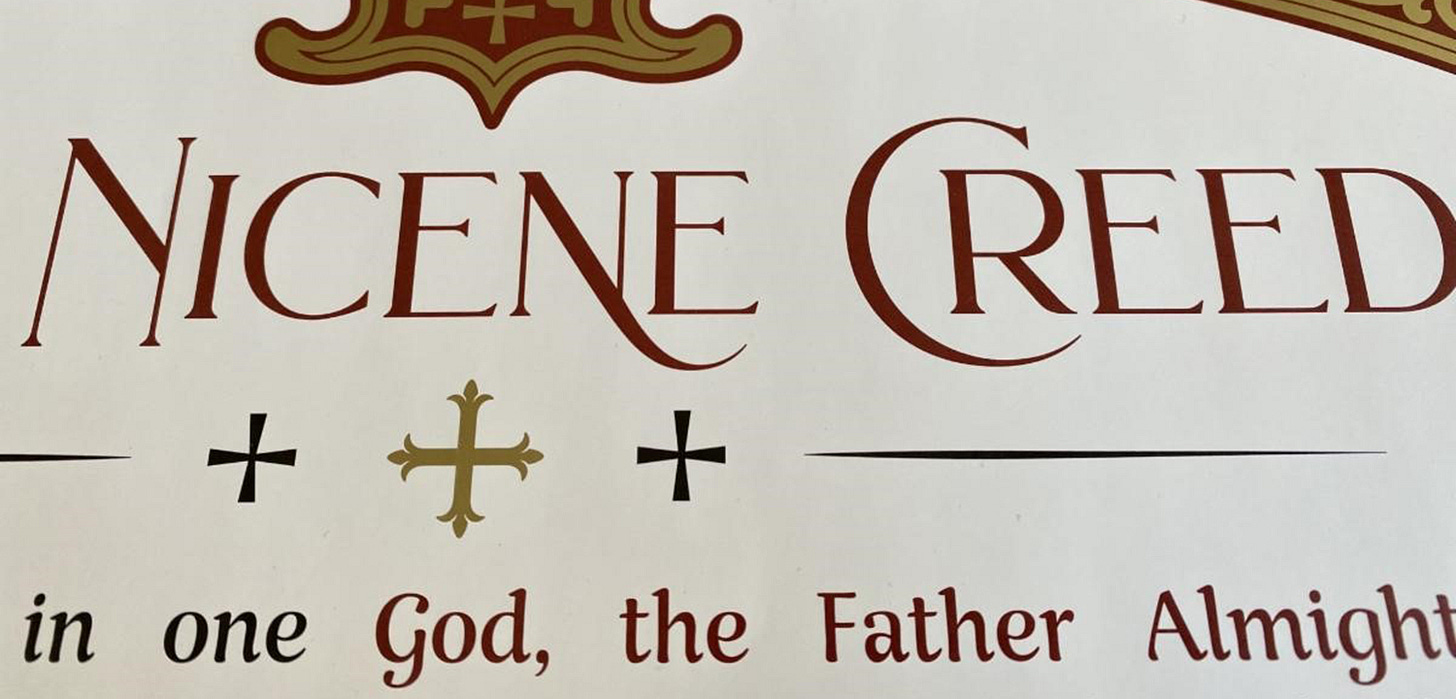The Nicene Creed
Something almost all Christians agree upon...
Today, a bit of church history – and a key aspect of Christian doctrine.
A little over 1700 years ago, in the early 320’s, Arius, who was a Christian elder/priest in Alexandria, Egypt began to loudly teach that Jesus Christ, as Son of God, was created by God the Father before Time began. “So what?”, you might ask.
The problem, you see, was that this diffe…



